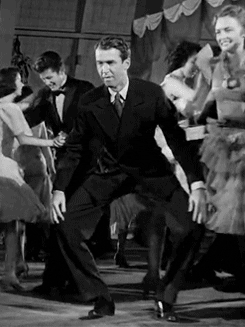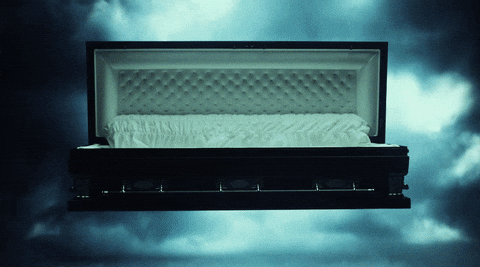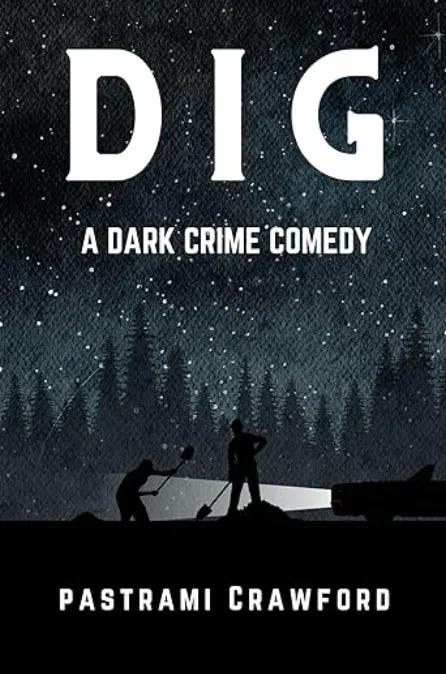I just rewatched It’s a Wonderful Life. It’s easily one of my favorites, which is weird for a writer who often waxes poetic on the darker side of living, the tragedies and the chaos, the monsters and the nonsense. But Jimmy Stewart’s Norman Rockwell charm, the aspirational selflessness of his portrayal of George Bailey, the grace and warmth of Donna Reed’s Mary, the way they pivoted from a financial crisis and an abandoned honeymoon to a Tahitian-themed bridal suite in an abandoned, ramshackle house, worn and weathered but organized and coordinated by the good people of Bedford Falls—it’s one of those movies that offers a glimpse of the best of us, of what we could be. Sure, it’s a fantasy, but fantasies are as important as air. Stop fantasizing about what’s possible and you’ll choke on your own misery.
I brought this optimism into our first home, a townhome, modest by most standards but overpriced—we bought it before the 2008 real estate bubble burst like an expired condom. Most of our neighbors kept to themselves. Everyone was polite enough: exchanged nods or “G’mornin’s“ on the greenbelts, borrowed eggs and cups of sugar from the neighbor on either side of you, and boring small talk when you took the kitchen trash out to the communal dumpster. We were neighborly but not Bedford Falls neighborly. Nobody was going to pool resources and take care of each other when Freddie Mac and Fannie Mae came calling for their pound of flesh.
We had one neighbor, though, who tested the limits of my Bedford Falls fantasy. Let’s call her Birdie. Our townhome was two stories, and part of it was over our garage. Birdie lived next door in a smaller unit above her garage. My first interaction with her was when I was moving us in. She shouted down from her terrace as I was schlepping boxes.
“You the new neighbor?” She had papery skin, long gray hair, and eyes straight out of an Edgar Allan Poe story.
“I’m one of them. My wife’s the other, but she’s at work. I’m Norm.”
She didn’t respond right away. Just kind of looked at me while she plucked a Vienna sausage from a tin and shoved it into her lower lip as if it was a wad of chewing tobacco.
“You look young and mobile,” she said, smacking her lips.
“Okay,” I said.
“You handy?”
“Um…” I was stalling. It felt like the wrong answer could land me in any number of situations, none of them in the spirit of It’s a Wonderful Life.
“Definitely gonna need your help around here,” she said. And then she went inside and slammed the door behind her.
About a week later, she came knocking, “I need water,” she said.
“Okay, what, like a glass, a pitcher…?”
“I have my own water, idiot. I don’t need charity, I need muscle.” She had the peculiar ability to insult me and flatter me in the same breath.
She handed me a key. “There are flats of water in my garage. They’re in a box leaning against the back wall. Get me two. Can you carry two?”
“Pretty sure I manage that.”
“Well, not if you just stand there like that.”
So I let myself into her garage, flipped on the light, and looked for the box leaning against the back wall. And sure enough there was a box leaning against the back wall, but I was immediately put off that Birdie used the word box.
Because it wasn’t a box.
It was a coffin.
And sure enough it was stocked with flats of Kirkland Signature water. I pulled out two, closed up her wooden overcoat, and hauled them upstairs.
At least five cats hopped up on the table where I set the flats of water. She didn’t have carpet so much as she had a thick layer of shed cat fur—it seemed to act as an extra layer of insulation. The oscillating fan sent some of the larger clumps rolling across the floor like tumbleweeds, and random clumps huddled in the corners, looking like back-up cats ready to spring to life.
One of the five cats meowed again and again, almost obsessively. Its need for attention was an interesting foil to Birdie who seemed hellbent on repelling everything in her line of sight.
“Go on and pet her, you idiot,” Birdie said. “She’s beautiful.”
So I did. And then Birdie immediately said, “So are you gonna go back to your wife and gossip about my coffin?”
“Of course not.”
“You’re not gonna tell your wife you were elbows deep in my coffin?”
“Sure, I’ll tell her. She’s my wife, I tell her everything. But my focus will be on your interesting and innovative use of space.”
“I got it on sale.”
I nodded, trying to exhibit nothing but empathy. But I must have failed because she snapped at me, “And, no, it wasn’t used.”
I heard from Birdie again not long after that. She was having an “emergency.”
She had mummified herself into some ornate gown in preparation for attending The Renaissance Faire. The bigger issue was this:
“I might have popped a stitch.”
“I don’t really know how to sew.”
“No, you idiot, I had surgery on my butt cheek a week ago. Long story. I need you to open up my dress and tell me if I popped a stitch.”
“Shouldn’t I call 911 or…”
“It’s just a little gash.”
“Okay, but I don’t really know what I’m looking for. Or at.”
“I thought you were a man.”
On one hand, I was a little uncomfortable undressing an old woman and examining her busted derrière. On the other hand, I was honored that she felt safe enough to ask me.
“I’m just not really sure—“
“In the time it takes you to get sure, I might bleed to death.”
“You said it was just a little gash!”
“Please! The Ren Faire is the only opportunity I have to meet a man. I can’t bat these eyelashes if I have to worry about a popped stitch.”
Suddenly she wasn’t just a weird old cat lady. She was a weird old cat lady who needed to be loved. And apparently she limited her prospects to attendees of The Ren Faire.
So I knelt down and loosened about a dozen different laces, all the while enduring her instructions, each prefaced with, “Okay, idiot…”
Finally, I was able to get a look under the hood, as it were. There was gauze and dressing that I had to peel to reveal the stitches. They were all intact. No bleeding. Nothing of concern.
I redressed the wound and laced her back up. “I hope you have a good time,” I said.
“I should charge you for the show you just got,” she said.
A couple days later I saw her and asked if she had any luck meeting a man at The Ren Faire.
“Not just one,” she said. “I know what I’m doing, kid.”
Most of my interactions with Birdie were like this, some combination of weird and desperate and funny—but always human. If you called up Central Casting and asked them to send over a stack of headshots for Bedford Falls extras in a reboot of It’s a Wonderful Life, Birdie wouldn’t be in that stack. But she’d probably sneak onto that set anyhow. She’d knock back Vienna sausages, mug for the camera, and steal every scene.













Hilarious. Glad she's not my neighbor but I've gotta respect anyone that pre-buys their casket on sale and utilizes it to stash their Costco haul.
What really struck me was the fact that she got a coffin on sale.
Was it a two for one deal? Was it last year's color? Was it an odd size? The possibilities are endless and disturbing.